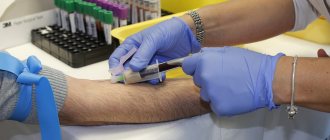Many people know firsthand how cardioneurosis occurs, the symptoms and treatment of the disease. Unpleasant attacks and panic attacks are no longer rare in the age of stress, crazy pace of life and loneliness. In ICD-10, this disease is not separately identified. Cardioneurosis is combined with dystonia of a vegetative-vascular and neurocirculatory nature into the group of somatoform autonomic dysfunctions or psychosomatic disorders. They require consultation with both a cardiologist and neurologist, and a psychotherapist.
What symptoms are characteristic of cardioneurosis?
What is cardiac neurosis? This is a psychosomatic disorder characterized by dysfunction of the cardiovascular system.
The most common symptoms of cardioneurosis:
- pain in the area of the heart muscle;
- tachycardia;
- feeling of heaviness or “emptiness” in the chest;
- lack of oxygen, shortness of breath;
- fear of death and loss of consciousness;
- fainting.
Important! Such symptoms are caused by an imbalance between the work of individual zones of the cerebral cortex and the center that regulates the activity of the heart and blood vessels in the hypothalamus.
All symptoms of cardioneurosis are divided into functional subgroups:
| Symptoms | Characteristic symptoms | Features taken into account during diagnosis |
| Cardiovascular | Pain to the left of the sternum (aching, throbbing, pressing, bursting in the chest); interruptions in heart rhythm (extrasystole); sudden increase in heart rate; tachycardia. | Cardialgia with neuroses differs from that occurring with a heart attack and other cardiac lesions in the absence of strong irradiation to other organs and aggravation during physical activity. Symptoms of cardioneurosis cannot be relieved with popular pharmaceuticals, for example, nitroglycerin. |
| Neuropsychological | Feelings of panic, hot and cold flashes, depression, fear of death, loss of consciousness. | The patient describes the unpleasant symptoms of cardioneurosis very emotionally. It seems to him that his heart is being squeezed in a vice, that it has stopped. A lump in my throat prevents me from breathing and swallowing. Some feel the flame inside, replaced by hellish cold. Moreover, each attack gives rise to new colorful descriptions of symptoms. |
| From other internal organs | Attacks of suffocation, discomfort in the stomach, headaches, excessive sweating. | Symptoms of cardioneurosis such as headaches and dizziness appear before or after an attack. Also, attacks of cardioneurosis are accompanied by a feeling of weakness and weakness. It is difficult for the patient to get ready and do everyday activities. The feet and palms most often sweat, but cold sweat can appear throughout the body. |
Patients note the suddenness of the first symptoms of cardioneurosis. They are usually preceded by a nervous shock or a stressful situation. The duration of the attack varies: ranging from ten minutes to three hours. The frequency also varies - from several times a day to a couple of times a year.
Attention! Clinical manifestations of cardioneurosis are more often recorded in young people under 30 years of age.
This disease is difficult to detect and distinguish from some cardiac and neurotic ailments, therefore there are no statistical data on the incidence of cardioneurosis. But, according to doctors, more than half of the adults in the world have experienced symptoms of cardioneurosis. And in a third of patients complaining of heart problems, the causes of unpleasant symptoms are precisely cardioneurosis. Recently, the number of such patients has increased.
Unpleasant sensation in the heart area - causes
The reasons why the heart may hurt are varied. Often the pain that appears in the area of our main motor does not mean that the problem lies there. Therefore, doctors divided all such unpleasant sensations into categories, and this is what happened:
- heart defects;
- gastrointestinal ailments;
- toxic effects;
- heavy load on the heart muscle;
- respiratory system defects;
- defects of large veins and arteries;
- injuries to nerve trunks;
- bone tissue injuries;
- muscle injury;
- skin injuries.
As a rule, it is these ailments that provoke pain that occurs in the heart area. But in this case, the question remains relevant of how to timely distinguish pain caused precisely by the heart, and not by another system of our body.
What can trigger cardioneuralgia?
Symptoms of cardioneurosis arise due to dysfunction of the nervous system. But its exact reasons are quite difficult to identify. It is necessary to take into account all the factors that provoke cardioneurosis in a complex manner.
The impetus for the manifestation of symptoms of cardioneurosis can be:
- physical stress;
- chronic stress and depression;
- psychotrauma;
- conflicts in the family and at work;
- sexual dysfunctions;
- sleep disorders;
- sharp fluctuations in hormonal levels;
- unhealthy diet (including strict diets);
- abuse of alcoholic beverages and other harmful substances.
Additional risk factors for cardioneurosis are chronic illnesses: infectious lesions, hypertension, vegetative-vascular dystonia, thyroid dysfunction, atherosclerotic cardiosclerosis and others.
Important! The risk of unpleasant symptoms of cardioneurosis is increased by endocrine disorders, especially in women (during pregnancy and menopause, with thyrotoxicosis).
The development of cardioneurosis is often associated with congenital inferiority of brain cells and other hereditary pathologies.
Most often, cardioneurosis manifests itself:
- in people experiencing constant stress;
- in athletes with their physical overload;
- workaholics who put career before health;
- in hysterical women;
- in impressionable teenagers;
- those who are prone to excessive self-control and perfectionism.
Physical inactivity, sleep disturbances, and other manifestations of an unhealthy lifestyle can also become causes of illness and lead to the appearance of symptoms of cardioneurosis.
general description
Cardioneurosis, as we have already defined, combines a complex of symptoms of a clinical scale that arise in the process of disruption of the harmony inherent in the overall functioning of the heart. The condition that causes cardioneurosis can be described by patients in different ways. So, some define it as “a heart as if in a vice,” for others the description comes down to a feeling of “emptiness in the chest area,” while others even define the condition as cardiac arrest. Accordingly, given the specificity of sensations, patients are faced with an essentially unreasonable fear of death, which may befall them as a result of heart disease.
The appearance of cardioneurosis can be accompanied by difficult periods for a person and, in fact, his body. These could be the following:
- Stress due to hormonal changes in the body;
- Menopause;
- Puberty period;
- Pregnancy.
In general, the reasons can be divided into two specific groups: physical stress and mental stress. In some cases, cardioneurosis is an integral part of the abuse of strong coffee, alcohol and tobacco.
What is the peculiarity of diagnostics?
This disease does not cause consequences in the form of organic pathologies. Why is cardioneurosis dangerous? Serious disruption of the quality of life of sick people. In addition to the fact that the symptoms of cardioneurosis themselves during an attack are extremely unpleasant, a person begins to expect a new wave of panic with any excitement. This interferes with a full life, work, and personal relationships.
Diagnosing cardioneurosis is quite difficult. When interviewing a patient, doctors take into account the following signs:
- regularity of symptoms;
- the presence of neurological disorders in addition to cardialgia;
- the presence in the life of a patient with cardioneurosis of emotional overload or hormonal changes;
- symptoms such as hyperhidrosis of the palms and soles, marbled skin tone, tendency to tachycardia and extrasystole, pressure surges;
- absence of other pathologies.
In order to confirm the last point, the doctor sends the patient for an electrocardiogram, ECHO, X-ray of the spine, and ultrasound examination of the thyroid gland. In addition, extensive blood tests are carried out - for glucose levels, cholesterol, and hormonal tests.
How does true cardialgia differ from heart pain due to cardioneurosis?
Patients with cardioneurosis always describe pain in the heart emotionally and characterize it in different ways. They cannot clearly characterize its character and intensity; they may blame their environment for involvement in its appearance. The anxiety that is caused by the presence of this symptom overrides the adequate perception of their condition and can turn into panic and a feeling of imminent death.
A patient with cardioneurosis is prone to fussiness, emotional gestures, taking any medications that come to hand, applying a heating pad or ice pack to the chest. All these attempts to alleviate his condition lead to nothing; he calls a doctor or an ambulance and requires immediate hospitalization.
In case of true cardialgia (for example, caused by angina), the patient tries to reduce his movements to a minimum, since they cause increased pain. The behavior of a “true heart patient” is radically different from the behavior of a patient with cardioneurosis: descriptions of pain are always clear and restrained, movements are limited, the patient takes a nitroglycerin tablet and patiently waits for the pain to disappear.
Such differential diagnosis is not always enough to make a diagnosis, and the patient is prescribed a series of studies to confirm cardioneurosis and exclude true heart pathology.
Psychotherapeutic assistance
The main task in the treatment of cardioneurosis is to normalize the functioning of the nervous system. A clinical psychologist or psychotherapist will help with this. A qualified specialist, using special treatment methods, will relieve high anxiety and teach you how to cope with panic attacks.
In the treatment of cardioneurosis, various psychotherapeutic techniques are used:
| Type of psychotherapy | What is the treatment for cardioneurosis? |
| Rational | To clarify the causes of panic attacks and the ability to control them. |
| Family | To stabilize relationships in the patient’s immediate environment. |
| Cognitive-behavioral | To become aware of those actions that lead to negative consequences and eliminate them from the patient’s life. |
| Hypnotic | To identify hidden causes of cardioneurosis. |
Psychotherapists will recommend group or individual sessions, classes via the Internet, auto-training, affirmations. Advanced cases will require treatment of cardioneurosis by a psychiatrist.
How is cardioneurosis related to other diseases?
Half of the patients with cardioneurosis have concomitant pathology. In almost 30%, during examination, secretive minor signs of mitral valve prolapse are found. The rest is distributed according to prevalence as follows:
- mild angina;
- hypertension with a crisis course;
- conduction disturbances of the WPW syndrome type, combined with supraventricular tachycardia;
- unclear (idiopathic) rhythm disturbances.
Most often, the disease is preceded by cardioneurotic manifestations, and clinical symptoms become more severe. For example, against the background of a hypertensive crisis, a panic attack develops, which is not relieved by conventional antihypertensive drugs. The patient's fear of a stroke does not correspond to the degree of high blood pressure and changes in blood vessels.
Less commonly, they occur after 3–5 years. This confirms the opinion of doctors about the need to include patients with cardioneurosis in the risk group.
Drug treatment of cardioneurosis
First of all, sedatives are used to relieve attacks of the disease. These include tinctures of peony, motherwort, valerian, Valocordin, Novo-Passit and others. But usually this treatment is not enough to cope with the recurring symptoms of cardioneurosis.
What medications can a doctor prescribe for cardioneurosis:
- anti-anxiety drugs (“Teralen”, “Diazepam”, “Lorazepam”, “Alprozolam”, “Trioxazine”);
- antidepressants (“Azafen”, “Amitriptyline”, “Sertraline”, “Fluoxetine”);
- beta blockers with psychotropic effects (“Verapamil”, “Nifedipine”);
- nootropic medications (“Phenibut”, “Pantogam”).
Pharmaceutical drugs for the treatment of cardioneurosis differ depending on the type of disease. For a hypersthenic reaction, “Trioxazin”, “Amizil”, “Meprotan” are indicated, for a hyposthenic reaction - tincture of Eleutherococcus, “Securinin”. Preductal, Mildronate, and Magne B6 will help relieve the alarming symptoms of cardioneurosis during menopause in women.
Traditional methods of treatment
Treatment with folk remedies is possible as an additional treatment and only on the recommendation of a doctor. After all, herbal compositions can cause allergies and only worsen the condition of cardioneurosis.
Herbal medicine for cardioneurosis includes medicinal plants with a calming, relaxing and heart rhythm-normalizing effect:
- mint;
- valerian;
- angelica;
- lemon balm;
- hop;
- caraway;
- chamomile;
- knotweed;
- hawthorn;
- pharmaceutical chamomile;
- motherwort;
- lemon balm.
The doctor will recommend which herbs and mixtures to choose for treatment, depending on the prevailing symptoms of cardioneurosis. If you are not allergic to bee products, honey is very useful for treating cardioneurosis. You can enjoy it in its pure form or drink a milk and honey cocktail before bed.
Prognosis and risk factors
When faced with symptoms characteristic of cardiac neurosis for the first time, a person most likely takes the wrong treatment. He tries to influence the source of unpleasant sensations - the heart. Whereas the origins of the disease are neurological disorders. In the absence of appropriate treatment, the symptoms of the pathology gradually worsen a person’s quality of life and lead to changes in his behavior and personality. The prognosis will be unfavorable.
If a person undergoes diagnostic procedures in a timely manner and receives an adequate diagnosis, treatment that corrects his condition will help restore his well-being. The prognosis is improving. Working capacity is restored, and chronic diseases recede.
As a rule, it is enough to eliminate provoking factors - stress, conflicts, unhealthy diet, physical activity, intellectual stress - in order to achieve positive dynamics in the symptoms of neurosis. Otherwise, cardioneurosis affects the activity of other internal organs, provoking the formation of various diseases in them.
Prevention
Preventive measures for cardioneurosis are similar to those that must be observed during treatment.
These include:
- correct work and rest regime without serious overtime;
- restoration of healthy sleep;
- giving up bad habits, including smoking;
- nutritious meals without fast food, savory dishes, caffeinated drinks;
- regular physical exercise without overexertion;
- contrast shower, hardening;
- limiting negative emotions and stressful situations.
Anxious and suspicious people should periodically take sedative herbal medications or drink herbal teas with a relaxing effect.
How to provide first aid during an attack?
What should the patient’s relatives do in case of neurosis of a cardiac nature if an attack occurs:
- Provide fresh air flow (open the window, turn on the fan).
- Loosen the tie and belt, unfasten the buttons near the collar.
- Take the person to a quiet place, persuade him to lie down on the sofa or bed.
- Explain the groundlessness of fear, convince that everything will be fine.
- Measure your blood pressure and pulse.
- Massage your palms, feet, and neck area.
You can offer the patient a sedative medicine from a home medicine cabinet - tincture of motherwort or valerian, Novo-Passit, Persen, Corvalol.
Important! If an attack of cardioneurosis does not go away, and the pulse and pressure increase, you need to call emergency help.











